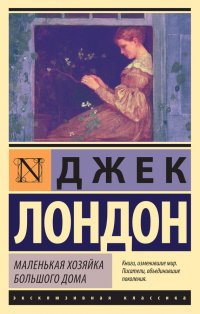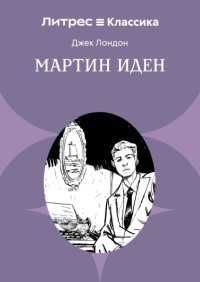
Читать онлайн Странник по звездам / The Star-Rover бесплатно
- Все книги автора: Джек Лондон
© Матвеев С. А., адаптация текста, коммент. и словарь, 2020
© ООО «Издательство АСТ», 2020
Chapter I
All my life I have had an awareness of other times and places. I have been aware of other persons in me.
Our dreams are grotesquely compounded of the things we know. My reader, as a child, you dreamed you flew through the air; you were vexed by crawling spiders; you heard other voices, saw other faces, and gazed upon sunrises and sunsets other than you know now.
Very well. These child glimpses are of other-worldness[1], of other-lifeness, of things that you had never seen in this particular world of your particular life. Then whence? Other lives? Other worlds?
Truly, shades of the prison close about us[2], and we all forget. And yet, when we were new-born we did remember other times and places. Yes; and we endured the torment and torture of nightmare fears of dim and monstrous things. We new-born infants, without experience, were born with fear, with memory of fear; and memory is experience.
As for myself, even at the beginning of my life, I knew that I had been a star-rover. Yes, I, whose lips had never lisped the word “king,” remembered that I had once been the son of a king. More—I remembered that once I had been a slave and a son of a slave, and worn an iron collar round my neck.
Still more. When I was three, and four, and five years of age, I was not yet I[3]. I was a mere becoming, a flux of spirit. Silly, isn’t it? But remember, my reader, remember, please, that I have thought much on these matters. I have gone through the hells of all existences to bring you news which you will share with me over these pages.
So, I say, during the ages of three and four and five, I was not yet I. Other voices screamed through my voice, the voices of men and women aforetime, of all shadowy hosts of progenitors.
A few weeks, I shall be led from this cell to a high place with unstable flooring, graced above by a rope; and there they will hang me by the neck until I am dead.
It is time that I introduce myself. I am neither fool nor lunatic. I am Darrell Standing[4]. Eight years ago I was Professor of Agronomics in the College of Agriculture of the University of California. Eight years ago the sleepy little university town of Berkeley[5] was shocked by the murder of Professor Haskell[6] in one of the laboratories. Darrell Standing was the murderer.
I am Darrell Standing. I was caught. In a surge of anger, obsessed by red wrath, I killed that professor.
No; I am not to be hanged for his murder. I received a life-sentence[7] as my punishment. I was thirty-six years of age at the time. I am now forty-four years old. I have spent eight years in the California State Prison of San Quentin[8]. Five of these years I spent in the dark. Solitary confinement[9], they call it. But through these five years I managed to attain freedom such as few men have ever known. Not only did I range the world, but I ranged time. Truly, thanks to Ed Morrell[10], I have had five years of star-roving. But Ed Morrell is another story. I shall tell you about him a little later. I have so much to tell.
Well, a beginning. I was born in Minnesota. And I knew agriculture. It was my profession. I was born to it, reared to it, trained to it; and I was a master of it. I can look, not at land, but at landscape, and pronounce the virtues and the shortcomings of the soil. Corn? Who else knows corn? And farm management! I know it. Who else knows it?
And here I must close this first chapter of my narrative. It is nine o’clock, and that means lights out.
Chapter II
I am Darrell Standing. They are going to take me out and hang me soon. In the meantime I write in these pages of the other times and places.
After my sentence, I came to spend the rest of my life in the prison of San Quentin. They put me in the jute-mill[11]. The criminality of wastefulness irritated me. The crime of waste was abhorrent. I rebelled. I tried to show the guards more efficient ways. But I was given the dungeon and the starvation of light and food. And I rebelled again. I was given the dungeon, plus the strait-jacket[12]. I was beaten by the stupid guards.
Two years of this witless persecution I endured. It is terrible for a man to be tied down and gnawed by rats. The stupid guards were rats, and they gnawed my intelligence, gnawed all my nerves and my consciousness. And I, who in my past have been a fighter, in this present life was no fighter at all. I was a farmer, an agriculturist, a professor, a laboratory slave, interested only in the soil and the increase of the productiveness of the soil.
I was not a fighter, but I was a thinker. And I told Warden Atherton[13]:
“It is so absurd, my dear Warden, to think that your guards can shake out of my brain the things that are clear and definite. The whole organization of this prison is stupid. You can’t weave jute. Your loom-rooms are fifty years behind the times.”
I showed him what a fool he was, and as a result he decided that I was a hopeless incorrigible.
Give a dog a bad name… – you know this proverb. Very well. Warden Atherton gave the final sanction to the badness of my name. Intelligent men are cruel. Stupid men are monstrously cruel. The guards were stupid monsters. Listen, and you will learn what they did to me. There was a poet in the prison, a convict, a degenerate poet. He was a forger. He was a coward. He was a snitcher. This poet-forger’s name was Cecil Winwood[14]. I was the dog that had been given a bad name. Cecil Winwood needed the dogs with bad names, the desperate ones, the incorrigibles.
Chapter III
The lifers[15] detested Cecil Winwood, and, when he approached them with his plan of a prison-break[16], they laughed at him. But he fooled them in the end. He approached them again and again. Cecil Winwood claimed that he could dope the guards the night of the break.
“Talk is cheap,” said Bill Hodge[17]. “What we want is the goods. Dope one of the guards tonight. There’s Barnum[18]. He’s no good. He’s on the night watch. Dope him tonight and make him lose his job. Show me, and we’ll talk business with you.”
All this Long Bill told me afterward. Cecil Winwood demurred against the demonstration. He claimed that he must have time in which to steal the dope from the dispensary. They gave him the time, and a week later he announced that he was ready. Forty lifers waited for the guard Barnum to go to sleep. And Barnum did. He was found asleep, and he was discharged for sleeping on duty.
Of course, that convinced the lifers. But there was the Captain of the Yard[19] to convince. To him, daily, Cecil Winwood was reporting the progress of the break—all fancied and fabricated in his own imagination. Winwood said that the forty men, in whose confidence he was, had already invented the prison-break and they had had dynamite which I had hidden somewhere.
All that day I lay in the dungeon. Meanwhile Captain prepared for the night, while Winwood was telling the forty lifers to be ready for the break. When two o’clock came, the guards rushed the cells occupied by the forty. The rush was simultaneous. The cells were opened at the same moment, the men named by Winwood were found fully dressed, and standing just behind their doors. The forty lifers were caught in readiness for the break. What if they did unite, afterward, in averring that the break had been planned by Winwood? Captain believed that the forty lied in an effort to save themselves. Cecil Winwood, forger and poet, most despicable of men, was pardoned out[20].
Oh, well, the prison is a training school for philosophy. Cecil Winwood still lives, while I, the utterest, the innocentest, go to the scaffold in a few weeks.
Chapter IV
They came for me. Ungraciously and ungently, with blow and curse, they haled me forth, and I faced Captain and Warden Atherton.
“Sit down,” said Warden Atherton, indicating a stout arm-chair.
I, beaten and sore, without water for a night long and a day long, faint with hunger, weak from a beating that had been added to five days in the dungeon and eighty hours in the jacket, hesitated to accept the invitation to sit down.
Warden Atherton was a large and very powerful man. He lifted me clear off the floor and crashed me down in the chair.
“Now,” he said, while I gasped and swallowed my pain, “tell me all about it, Standing.”
“I don’t know anything about what has happened…”, I began.
Again he lifted me in the air and crashed me down into the chair.
“No nonsense, Standing,” he warned. “Tell the truth about the prison-break.”
“I don’t know anything,” I protested.
Once again I was lifted and smashed back into the chair. The chair was demolished. Another chair was brought, and soon that chair was demolished. Even more chairs were brought, and the eternal questioning about the prison-break went on.
When Warden Atherton grew tired, Captain relieved him; and then a guard took Captain’s place in smashing me down into the chair.
I do not know how many chairs were broken by my body. I was dragged back to the dark. There, when I became conscious, I found a stool in my dungeon.
And ever the examination went on. Ever, one at a time, convicts were dragged away and dragged or carried back again. They reported that Warden Atherton and Captain Jamie, exhausted by their efforts, relieved each other every two hours. While one slept, the other examined. And they slept in their clothes in the very room in which strong man after strong man was being broken.
And hour by hour, in the dark dungeons, our madness of torment grew. I suffered equally with the others from pain and thirst; but added to my suffering was the fact that I remained conscious to the sufferings of the others.
Don’t you see? Our truth, the very truth we told, was our damnation. When forty men told the same things, Warden Atherton and Captain Jamie could only conclude that our words were a lie.
It was winter. We had no blankets in the dungeons. In the end they gave us water. I shall skip the rest of what happened in the dungeons. 25 per cent of the forty have died in the succeeding six years.
After my five years in solitary, when they took me away from San Quentin for my trial, I saw Skysail Jack[21]. His hair had turned white. He was prematurely old. His cheeks were sunken. His hands shook. He tottered as he walked. And his eyes blurred with tears as he recognized me.
“You’re a good one, Standing,” he said. “You told them nothing.”
“But I never knew, Jack,” I whispered back—I was compelled to whisper, for I had lost my voice.
They are going to take me out and hang me in a little while—no, not for killing Professor Haskell. I got life-imprisonment for that. They are going to hang me because I was found guilty of assault.
I believe I made a man’s nose bleed. I never saw it bleed, but that was the evidence. Thurston[22], his name was. He was a guard at San Quentin. He weighed one hundred and seventy pounds and was in good health. I weighed under ninety pounds, and was blind as a bat from the long darkness.
I struck Thurston on the nose and made it bleed when he got in my way and tried to catch me. And so they are going to hang me. It is the written law of the State of California.
Life is strange. I warned you I had many things to write about. I shall now return to my narrative. They gave me twenty-four hours in the jacket to think everything over. Then I was brought before the Board a second time. What could I do? They told me I was a liar. They told me I was a hard case, a dangerous man, a moral degenerate, the criminal of the century. They told me many other things, and then they carried me away to the solitary cells. I was put into Number One cell. In Number Five lay Ed Morrell. In Number Twelve lay Jake Oppenheimer[23]. And he had been there for ten years. Ed Morrell had been in his cell only one year. He was serving a fifty-years’ sentence. Jake Oppenheimer was a lifer. And so was I.
The fools! As if they could throttle my immortality with their clumsy device of rope and scaffold! I shall walk, and walk again, oh, countless times, this earth.
Chapter V
It was very lonely at first, in solitary, and the hours were long. Time was marked by the regular changing of the guards, and by the alternation of day and night. Day was only a little light, but it was better than the all-dark of the night.
Never was the light strong enough to read by. Besides, there was nothing to read. One could only lie and think and think. And I was a lifer, and it seemed certain, that all the years of my life would be spent in the silent dark.
My bed was a thin and rotten tick of straw spread on the cell floor. And a thin and filthy blanket. There was no chair, no table—nothing but the tick of straw and the thin, aged blanket. For years I had slept five hours a night. But I became able to sleep ten hours, then twelve hours, and, at last, as high as fourteen and fifteen hours out of the twenty-four. But beyond that I could not go, and, perforce, was compelled to lie awake and think and think.
I was trying to do something. I counted numbers, I imagined chess-boards and played both sides of long games. I tried, and tried vainly, to split my personality into two personalities and to play one against the other. But ever I remained the one player.
And time was very heavy and very long. I played games with flies, with ordinary house-flies; and learned that they possessed a sense of play. For instance, lying on the cell floor, I established an arbitrary and imaginary line along the wall some three feet above the floor. When they rested on the wall above this line they were left in peace. When they passed that line I tried to catch them.
Of the dozen or more flies that lived with me, there was only one who did not care for the game. He refused steadfastly to play, and very carefully avoided the unsafe territory. He never played with the other flies either. He was strong and healthy.
Believe me, I knew all my flies. Oh, each was distinctly an individual—not merely in size and markings, strength, and speed of flight. They were differentiated in the mentality and temperament.
I knew the nervous ones, the phlegmatic ones. Moreover, I could tell in advance when any particular fly was beginning to play.
But the hours were very long in solitary. I could not sleep them all away. House-flies are house-flies, and I was a man, with a man’s brain; and my brain was trained and active. And there was nothing to do, and my thoughts ran abominably on in vain speculations.
The world was dead to me. No news of it filtered in. The history of science was making fast, and I was interested in a thousand subjects. The very thought of science just beyond the prison walls and in which I could take no part, was maddening. And in the meantime I lay there on my cell floor and played games with house-flies.
And yet all was not silence in solitary. One day I heard, at irregular intervals, faint, low tappings. Continually these tappings were interrupted by the snarling of the guard.
The matter was easy of explanation. I had known, as every prisoner in San Quentin knew, that the two men in solitary were Ed Morrell and Jake Oppenheimer. And I knew that these were the two men who tapped to each other and were punished for doing so.
The code they used was simple. There came a day when I listened to two clear sentences of conversation!
“Say—Ed—what—would—you—give—right—now—for—the—paper—and—tobacco” asked the one who tapped from farther away.
I nearly cried out in my joy. Here was communication! Here was companionship! I listened eagerly, and I heard Ed Morrell’s reply:
“I—would—give—twenty—hours—of—staying—in—the—jacket—for—that.”
Then came the snarling interruption of the guard: “Stop it, Morrell!”
The tapping ceased, and that night I tapped,
“Hello.”
“Hello, stranger,” Morrell tapped back; and, from Oppenheimer, “Welcome to our city.”
They were curious to know who I was, how long I was condemned to solitary, and why I had been so condemned. It was a great day, for the two lifers had become three.
To my surprise—yes, to my elation—both my fellow-prisoners knew me as an incorrigible. I had much to tell them of prison events and of the outside world. As they told me, news occasionally dribbled into solitary by way of the guards, but they had had nothing for a couple of months. The present guards on duty in solitary were particularly stupid.
How we talked that night! Sleep was very far from our eyes. In the morning the guards reported much tapping during the night, and we paid for it; for, at nine, came Captain Jamie with several guards to lace us into the torment of the jacket. Until nine the following morning, for twenty-four straight hours, laced and helpless on the floor, without food or water, we paid the price for speech.
Oh, our guards were brutes! Hard guards make hard prisoners. We continued to talk, and, on occasion, to be jacketed for punishment. Night was the best time: we often talked all night long.
Night and day were one with us who lived in the dark. We could sleep any time. We told one another much of the history of our lives, and for long hours Morrell and I have lain silently, while Oppenheimer slowly spelled out his life-story. They called Jake Oppenheimer the “Human Tiger.” But I found in Jake Oppenheimer all the cardinal traits of right humanness. He was faithful and loyal. He was brave. He was patient. He was capable of self-sacrifice. And he had a splendid mind. A lifetime in prison, ten years of it in solitary, had not dimmed his brain.
Morrell, a true comrade, too had a splendid brain. And here at the end of my days, reviewing all that I have known of life, I think that strong minds are never docile. The stupid men, the fearful men—these are the men who make model prisoners. I thank all gods that Jake Oppenheimer, Ed Morrell, and I were not model prisoners.
Chapter VI
To be able to forget means sanity. To remember everything means obsession, lunacy. So the problem I faced in solitary was the problem of forgetting. When I gamed with flies, or played chess with myself, or talked with my knuckles, I partially forgot. What I desired was entirely to forget.
There were the boyhood memories of other times and places. Sometimes solitary life-prisoners resurrected and looked upon the sun again. Then why could not these other-world memories of the boy resurrect?
But how? Hypnotism should do it. But first I must tell how, as a boy, I had had these other-world memories.
Let me narrate just one incident. It was up in Minnesota on the old farm. I was nearly six years old. A missionary, returned from China to the United States, spent the night in our house. It was in the kitchen just after supper, as my mother was helping me undress for bed, and the missionary was showing photographs of the Holy Land.
I cried out at sight of one of the photographs and looked at it, first with eagerness, and then with disappointment. It seemed most familiar. Then it seemed strange.
“The Tower of David,” the missionary said to my mother.
“No!” I cried with great positiveness.
“You mean that isn’t its name?” the missionary asked.
I nodded.
“Then what is its name, my boy?”
“Its name is…” I began, then concluded lamely, “I forget.”
“It doesn’t look the same now,” I went on after a pause.
Here the missionary handed to my mother another photograph.
“I was there myself six months ago, Mrs. Standing.” He pointed with his finger. “That is the—”
But here I broke in again, pointing on the left edge of the photograph.
“That name you just spoke,” I said, ”was what the Jews called it. But we called it something else. We called it… I forget.”
“Listen to the youngster,” my father chuckled. “You’d think he’d been there.”
I nodded my head, for in that moment I knew I had been there, though all seemed strangely different. My father laughed, but the missionary handed me another photograph.
“Now, my boy, where is that?” the missionary quizzed.
And the name came to me!
“Samaria[24],” I said instantly.
“The boy is right,” the missionary said. “It is a village in Samaria. I passed through it. That is why I bought it. And it seems that the boy has seen similar photographs before.”
This my father and mother denied.
“But it’s different in the picture,” I said, while my memory was busy reconstructing the photograph. The differences I noted aloud and pointed out with my finger.
“The houses were about right here, and there were more trees, lots of trees, and lots of grass, and lots of goats. I can see them now. And right here are lots of men walking behind one man. And over there”—I pointed to where I had placed my village—“lots of tramps. And they’re sick. Their faces, and hands, and legs is all sores.”
“He’s heard the story in church or somewhere—you remember, the healing of the lepers,” the missionary said with a smile of satisfaction. “How many sick tramps are there, my boy?”
I announced:
“Ten. They’re all waving their arms and yelling at the other men.”
“But they don’t come near them?” was the query.
I shook my head.
“They just stand right there and yell like they’re in trouble.”
“Go on,” urged the missionary. “What next? What’s the man doing in the front of the other crowd you said was walking along?”
“They’ve all stopped, and he’s saying something to the sick men. And the boys with the goats have stopped to look. Everybody’s looking.”
“And then?”
“That’s all. The sick men are heading for the houses. They aren’t yelling any more, and they don’t look sick any more.”
At this all three of my listeners broke into laughter.
“And I’m a big man!” I cried out angrily. “And I have a big sword!”
“Christ healed those ten lepers,” the missionary explained to my parents. “The boy has seen some famous paintings.”
But neither father nor mother could remember that I had ever seen famous paintings.
“He will certainly become a good Bible scholar,” the missionary told father and mother after I had kissed them good-night and departed for bed. “Or else, with that imagination, he’ll become a successful fiction-writer.”
Well, back to solitary. By self-hypnosis, which I began successfully to practise, I became able to put my conscious mind to sleep and to awaken and loose my subconscious mind. My method of mechanical hypnosis was simple. Sitting with folded legs on my straw-mattress, I gazed fixedly at a straw which I had attached to the wall of my cell near the door where the most light was. I gazed at the bright point. At the same time I relaxed all my will and gave myself to the swaying dizziness that always eventually came to me. And then I closed my eyes and fell unconscious on the mattress.





